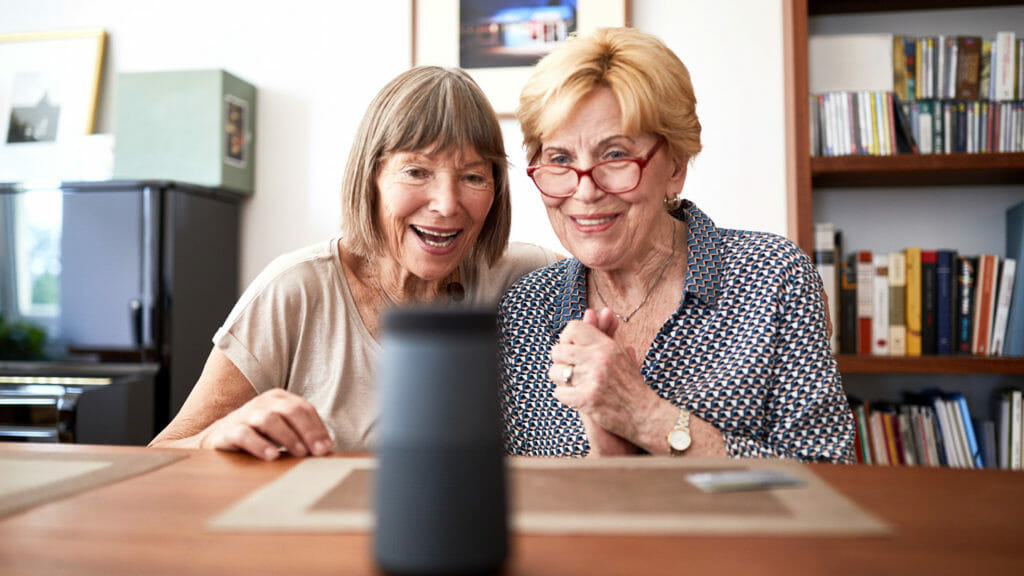
Although some residential tables are designed with tech for older adults, maybe it’s time that seniors had a seat at the tech planning table, one expert suggests.
Technology aimed at older adults could use more input from seniors themselves, argues Clara Berridge, PhD, an associate professor at the University of Washington.
Berridge led a team in developing an app, “Let’s Talk Tech,” designed to help foster conversations between caregivers, seniors living with dementia and their families, about what technologies they prefer. The tool was highlighted this week in a story on the LeadingAge website.
Berridge also recently addressed topics related to older adults and tech in two journal articles that focus on robots targeted at the senior market.
Robots have become more prevalent within senior living and care spaces in a variety of capacities, serving as companions to residents, as well as security and emergency aids.
Despite more technology and tech literacy programs aimed at older adults, those efforts often involve “pushing acceptance” of such tools, regardless of what seniors actually want, and seniors’ feelings about adapting or integrating certain solutions should be “taken more seriously,” Berridge said in an interview posted on UW’s website.
Often, older adults are just used as “passive data points” in both private homes and long-term care, which can be a problem when technology involves invasion of privacy or restricts movement/controls routines, Berridge said.
In a study on older adults and robots, researchers including Berridge found that older seniors showed greater discomfort with the idea of using robot companions, although that discomfort changed during the pandemic’s isolation period, when access to in-person social interaction was limited. Another survey study found that some older adults living with dementia were afraid that their caregivers would deceive them into confusing robot and human interactions.
For related reasons, some robot developers have shied away from promoting their companions as pure replacements for human interaction. The senior living robot ElliQ, for instance, is meant to be more akin to a pet, or something new altogether, ElliQ’s developers told the McKnight’s Tech Daily last month.


